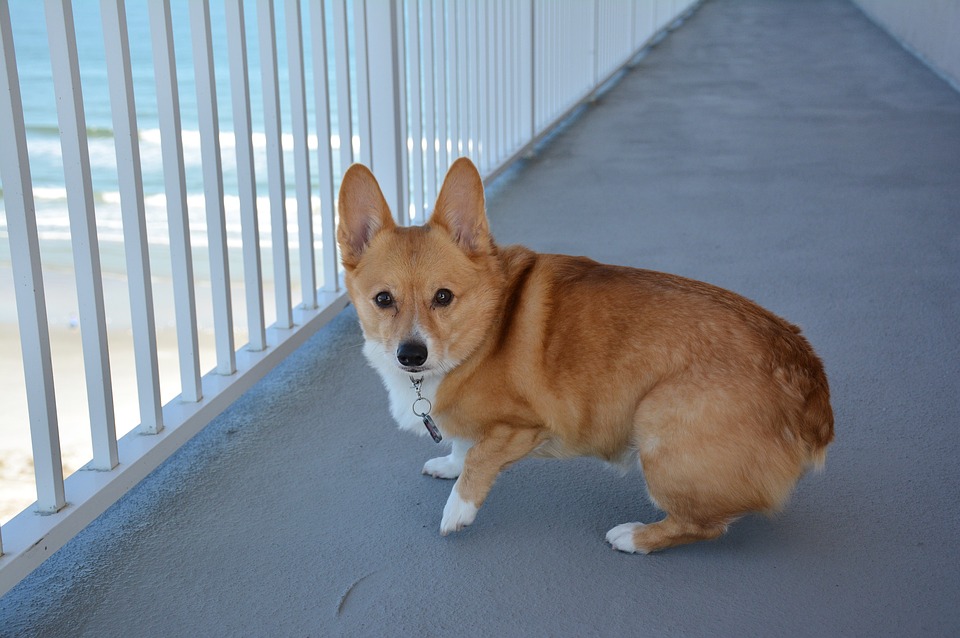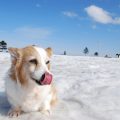Table of Contents
A baby corgi has a double coat that keeps them cool during hot days and warm during the winter season. The quality of the hair is just right which enables them to not require any bathing even if they work along with their masters in moving cattle to muddy fields back in the day, and this is because their coat dries up naturally making the dirt easily fall out. The coat is amazing but it does come with a price; this is because baby corgis shed a lot of hair. It’s like no food, drink or surface is safe from the scourge that baby corgis’ coats bring. There’s also no amount of brushing, blow drying, bathing, or any other sort of grooming will stop the encroachment of shed hair into your daily life which is why you better get used to it if you plan on keeping corgis.
Shedding
Imagine, if you will, the greatest amount of hair you can feasibly foresee coming off an animal. Now, imagine two or three times that amount. As a matter of fact, that’s just a rough estimate of how much baby corgis can shed which means it could be more depending on the animal. This is why if you’re not fine with shedding, or you’re more of a neat keeper, then perhaps the Corgi breed is not for you. This warning sound like we’re exaggerating but we’re not, and although shedding is supposed to be just a minor part of keeping a dog, it’s something that a lot of first – time Corgi keepers can’t understand until they experience living with them.
Constant brushing is needed to keep the dog’s shedding at a minimum but the coat itself only need a little maintenance. You don’t have to bathe your pet every day, just once or twice a month will do, unless of course, the baby corgi has become unspeakably stinky or disgusting. Aside from that, keep in mind that their coat should never be shaved otherwise it will compromise the coat’s hair quality in the long run. The breed’s short stature also lends itself to more coat maintenance on rainy days; when a tall breed would normally get his feet wet, a Corgi’s whole underside will be soaked. In terms of other grooming, baby corgis need care just like every other dog; they need to get their nails trimmed and teeth cleaned.
Baby Corgi and Health Issues
The dwarf mutation of the baby corgi alters the development and growth of their cartilage. The reason why they’re small in stature is because of the growth plates that should normally make their bones thick, producing bone systematically but when sex hormones arise, it triggers their growth to stop.
Dwarfed dogs including the Corgi breed has very thin growth plates and these reproduces sporadically and incorrectly. It also matures sooner than normal making the bone short and gnarled. These growth plates are also fragile which means it’s prone to injury. If the growth plate is injured, then it is at risk for causing one bone to stop growing while the rest of the bones continue which eventually produces bowed or twisted limbs making it painful for the corgi breed.
Growth Plates
Growth plates can be injured if there’s an over – exertion. Activities like jumping or running can crush their fragile growth plates which is why it’s important to only limit such high – impact activities at least until the baby corgi has reached 1 to 1 ½ years old. This doesn’t means that you stop your puppy completely from running and playing, but just supervise and make sure that the puppy doesn’t always jump off of furniture or high table tops. It’s also best to not take your puppy jogging, and avoid strenuous agility work or repetitive small jumps at least until he/ she reaches full maturity.
The rapid degeneration of cartilage is usually caused by dwarfism, and this disorder is present in the family of the breed. Cartilage is a connective tissue that cushions joints as well as holds them together. When cartilage wears down faster in dwarfed dogs, osteoarthritis may develop at an early age particularly in areas with small bones, such as the wrist or feet. As such, some baby corgis may become very sensitive about having their feet touched and manipulated.
IVDD
The discs in their spine are usually affected by early onset of cartilage degeneration making the Corgi breed at high risk for a health issue called intervertebral disc disease, or IVDD
IVDD in dwarf dogs happen when the normally squishy disc between the vertebrae in the spine hardens prematurely and severely that it results to reduced spine flexibility. When these discs are forced to compress or stretch, the disc can eventually rupture and put pressure on the spinal cord as well as the surrounding nerves which can be very painful for your dog.
No One’s Safe
IVDD has various degrees; it can just be in the form of mild back pain to complete paralysis. All Corgi breeds are at risk for IVDD, and the risk increases exponentially if your pet is obese. An extra two to three pounds can be problematic. An obese Corgi with little supporting muscle is more at-risk compared to a well – conditioned baby corgi, particularly when engaging in high-impact activities including jumps and quick turns or twists. The effect is cumulative which means that the dog’s risk for a catastrophic IVDD episode increases in the long run.
Being overweight is more than just an appearance problem; it can actually be a life – threatening condition. This is because the extra weight can definitely pull the spine which in turn could aggravate the joints. These are precipitating problems that otherwise may not have occurred if you learn how to maintain your pet’s health.
Food Food Food!
Corgis are nothing if not motivated by food, but it is essential that weight is carefully monitored. It’s very easy for a baby corgi to gain weight. A good exercise regime and appropriate portions of food are quite necessary for their health. Make sure to ask your vet for a candid assessment of the baby corgi’s weight and then take their opinion seriously because it might save your pet’s life. Step up the walks and cut back the food. A Corgi with lightly padded ribs and a tucked loin is a canine who’s going to live a longer, happier life.
Keep in mind that all dog breeds are individuals and may not conform to breed standard. So if you want to maximize the chances of getting what you want out of your baby corgi, and be able to minimize the occurrence of health problems, then make sure to seek responsible and reputable breeders. Never buy a dog from anyone or anywhere else, that’s the starting point.






 Author and long-time animal lover. Sharing knowledge on pet care through experience and the written word.
Author and long-time animal lover. Sharing knowledge on pet care through experience and the written word.